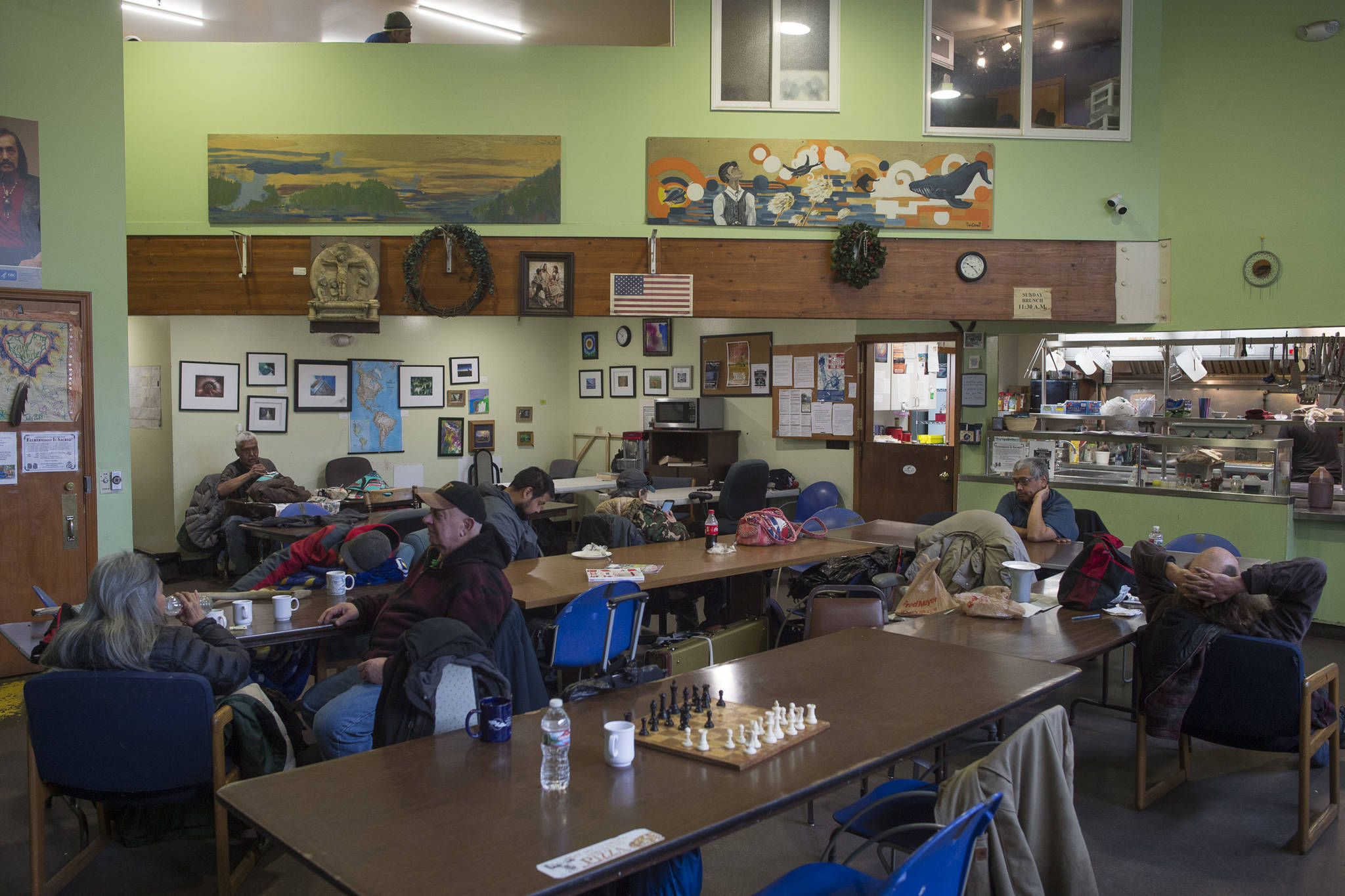For most Juneau residents, our community is a wonderful place to live, work and raise a family. Our magnificent scenery, small footprint, cultural and recreational opportunities and an absence of big city traffic and smog make Juneau highly livable. But there’s a disturbing reality that begs our attention — now more than ever.
Even with its many advantages, Juneau is not immune from homelessness issues facing many American cities. This reflects directly on our community, affecting all of us.
Concerned city leaders, individuals and nonprofit organizations have tackled this challenge head on — providing an essential social safety net that has long served Juneau’s homeless population. These efforts have forestalled the kind of headline-making mistakes now plaguing many West Coast cities.
This could change in the near future.
State budget cuts to various housing and homeless assistance programs are looming.
The most visible program in our community impacted by these changes is The Glory Hall, currently located on South Franklin Street in the heart of Juneau’s downtown district. Established in 1982 as a nonprofit and in its present location since 1994, the Glory Hall has been inaccurately characterized as “just a free meal center” but, in reality, its mission involves much more.
Operating as Juneau Cooperative Christian Ministry dba The Glory Hall, it describes itself as an “emergency shelter, soup kitchen, and care center.” While providing up to 4,500 free meals every month, its ultimate goal is for patrons to “obtain and maintain permanent housing and self-sufficiency, and/or to live a healthy and productive life.”
The Glory Hall provides meals, emergency shelter, transportation and social service referral assistance, mental health counseling, medical assistance, laundry, showers, as well as volunteer opportunities.
Patrons are expected to pay for shelter services or compensate the Glory Hall through volunteer work.
Governed by a volunteer board of directors, the Glory Hall depends on individual donations, and federal, state, city or private grants. If currently proposed state budget cuts remain, the Glory Hall will lose 23% of its annual budget.
The Glory Hall is willing to make some tough decisions. It is examining every facet of its operation to see where savings can be realized while still delivering on its core mission.
The the Glory Hall Board took the first step in this process by choosing to relocate nearer to other service agencies in the Mendenhall Valley in a safer, more cost-efficient building.
[Glory haul: Juneau homeless shelter eyes move to Mendenhall Valley]
The Glory Hall’s existing building is expensive to maintain, isn’t handicap-accessible, lacks privacy, and is isolated in the downtown area. Its location hampers effective social service coordination and transitional opportunities for Glory Hall patrons.
The Glory Hall is not expanding — it will continue serving the same number of people — but it will save money and allow the Glory Hall to take advantage of synergies with transitional housing and counseling services nearby.
Much like the successful Housing First facility recently built in Lemon Creek (staffed by Glory Hall personnel), this project will provide better, more efficient care services for homeless individuals.
As former Mayor Ken Koelsch observed in a recent op-ed, this is a win-win for Juneau.
Our community has the financial capacity to provide significant support. While Juneau is incredibly generous, some social services often struggle for funding. It’s puzzling because the business publication Kiplinger recently listed Juneau as the top small U.S. city with the highest concentration of millionaire households – 1,109 – almost 9% of Juneau’s households.
The Glory Hall building project has raised nearly half of the $300,000 needed by Sept. 1 to secure the land purchase. It has done this without asking to dip into the CBJ piggy bank. After securing the land, the board will have time to marshal funding for building construction.
Contributions are being routed through the Juneau Community Foundation (JCF). Donations can be mailed to JCF at 315 North Franklin Street, Suite 4, Juneau, Alaska, 99801 or arranged by contacting JCF directly at (907) 523-5450 or info@juneaucf.org.
In 1967, Juneau citizens stepped up to build a new state museum. Recently, we donated to re-build Project Playground. Many have contributed generously for a new arts and cultural center.
The new Glory Hall is not a glamorous project to embrace, but our response to this call to action is as much a reflection of who we are as a community as our cultural attractions, parks and buildings.
• Win Gruening retired as the senior vice president in charge of business banking for Key Bank in 2012. He was born and raised in Juneau and graduated from the U.S. Air Force Academy in 1970. He is active in community affairs as a 30-plus year member of Juneau Downtown Rotary Club and has been involved in various local and statewide organizations. He contributes a regular column to the Juneau Empire. My Turns and Letters to the Editor represent the view of the author, not the view of the Juneau Empire.

